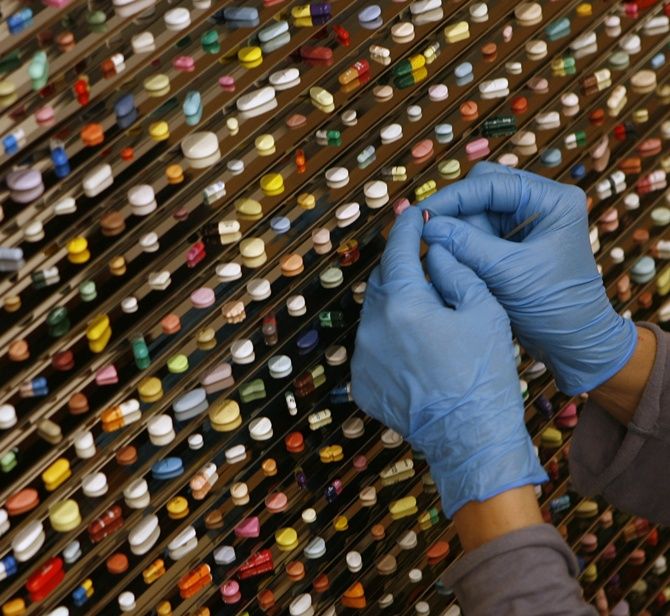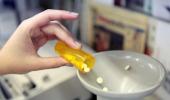After spending considerable time and energy in remediation efforts in the wake of the US Food and Drug Administration's warning letter on compliance issues, the company's leadership has finally set out to bring the house in order.

A string of measures announced recently by drug major Dr Reddy's Laboratories, including reversal of some business decisions, indicates the management's drive to break the status quo and regain the business momentum, according to analysts.
After spending considerable time and energy in remediation efforts in the wake of the US Food and Drug Administration's warning letter on compliance issues, the company's leadership has finally set out to bring the house in order.
The decisions by the company include sale of the Bristol manufacturing facility and reversal of a couple of other old business decisions.
Commenting on sale of a manufacturing facility in the US, Dr Reddy's chief operating officer Erez Israeli earlier said, "This sale is in line with our stated priority to streamline and optimise our global cost structures and help us focus on other businesses priorities to drive growth."
Things started moving in a decisive way after Israeli joined in April this year while the management has been working hard to bring changes in the organisational and business strategies with an aim to getting the company back on track in terms of revenue growth and profitability since last year, according to the analysts.
Dr Reddy's CEO GV Prasad himself acknowledged the importance of the ex-Teva man's induction into his team and said the latter's knowledge and experience in leading the pharmaceuticals business will be valuable for future growth.
In one of the cost-cutting exercises, the company, for the first time, effected changes in second and third rung leadership and asked some of the employees to leave the company on performance grounds earlier this year. It was held that staff costs at Dr Reddy's were high compared to some of its peers as the Hyderabad-based drug major was seen to be more lenient towards its employees.
This legacy was put to test for the first time when Dr Reddy's management was not able to fix the accountability on people for the adverse inspectional observations made by the US drug regulator. This had culminated into the issuance of a warning letter involving three of the company's facilities in November 2015, say analysts.
The company's management is still talking to the US drug regulator for a final inspection of one of the facilities in question.
Among other cost control measures, the management had slightly scaled down the expenses on the R&D and capex fronts during the first two quarters of the current financial year. Revisit of the previous business decisions based on their contribution to overall revenue growth are expected to continue in the coming months. But the company's new business strategy, aimed at returning to higher revenue growth in the US, has not yet been fully translated into action, according to the analysts.
So far, the company was focusing on niche and 'difficult-to-make' products, including those under patent litigation as these items command a higher market size as well as higher margins. This is in complete contrast to the business model being followed by other Indian generics players like Aurobindo Pharma, whose single-minded pursuit has been to make as many product launches as possible without bothering too much about the market share or pricing.
However, Dr Reddy's product strategy has faced challenges due to prolonged waiting time for approval, resulting in fewer launches as compared to faster approvals being given to the normal generics products. This has resulted in a fall in US revenues, which account for half of the company's global generics revenues.
"To overcome this challenge, senior management officials said that they would be pursuing the launch of more 'me-too' generic products to sustain the revenue growth. But this changed strategy is yet to play out in full so far," an analyst told Business Standard on condition of anonymity.
Dr Reddy's has launched a couple of big-ticket products this year after a considerable wait for green light from the USFDA.
Last week, it launched anti-cancer drug Imatinib Mesylate (the generic version of block-buster Gleevec owned by Novartis Corporation) following the grant of approval from the USFDA in August this year. The company was waiting for the approval for its generic Gleevec ever since Sun Pharma was given first-to-file status along with the approval back in 2015.












 © 2025
© 2025